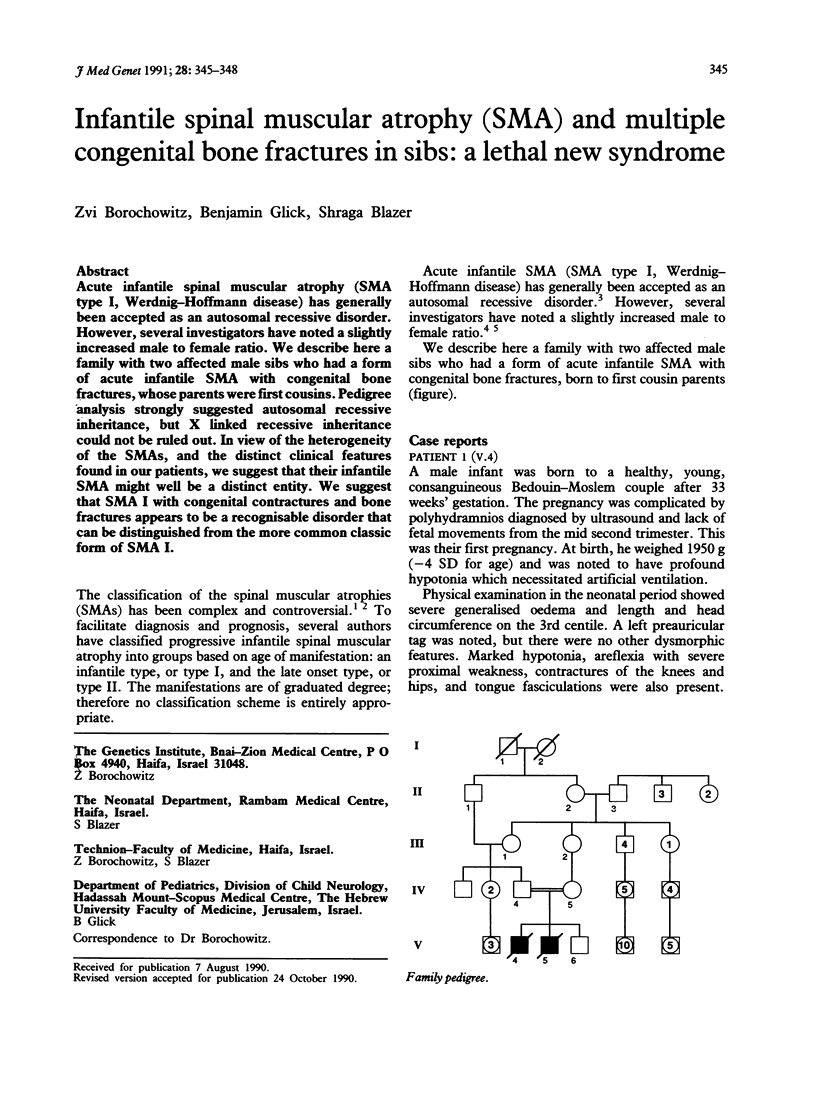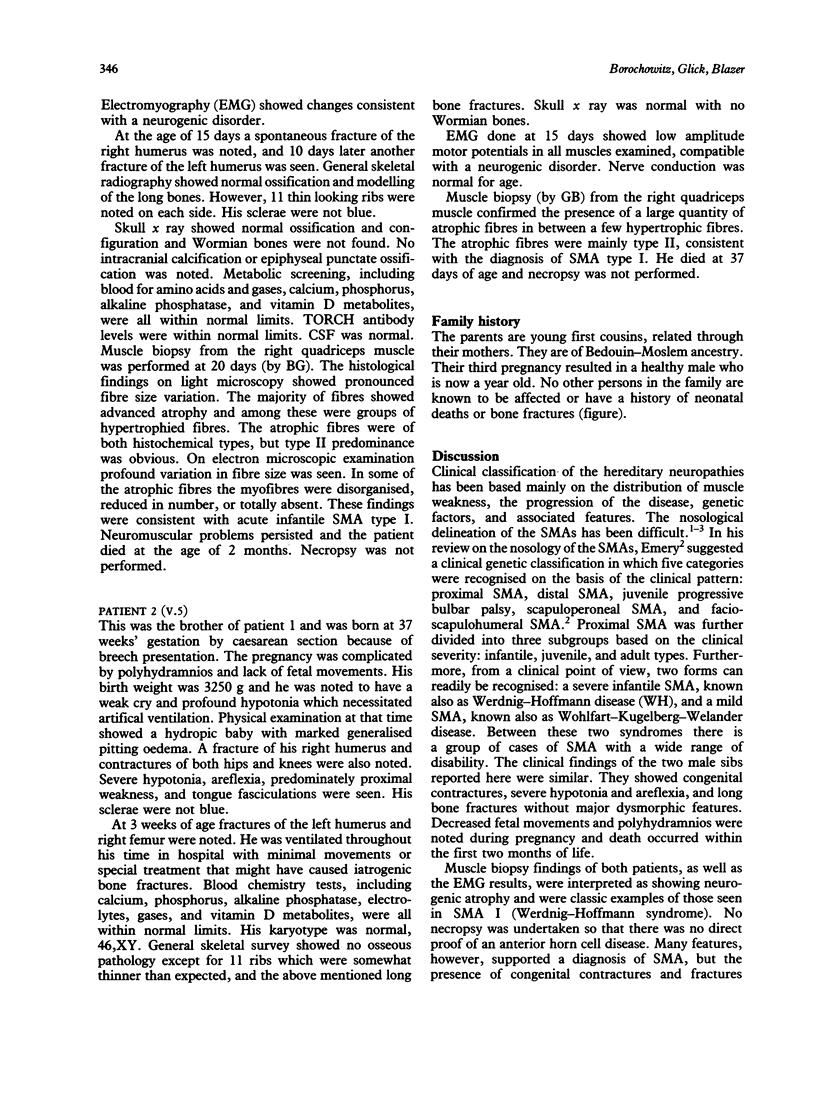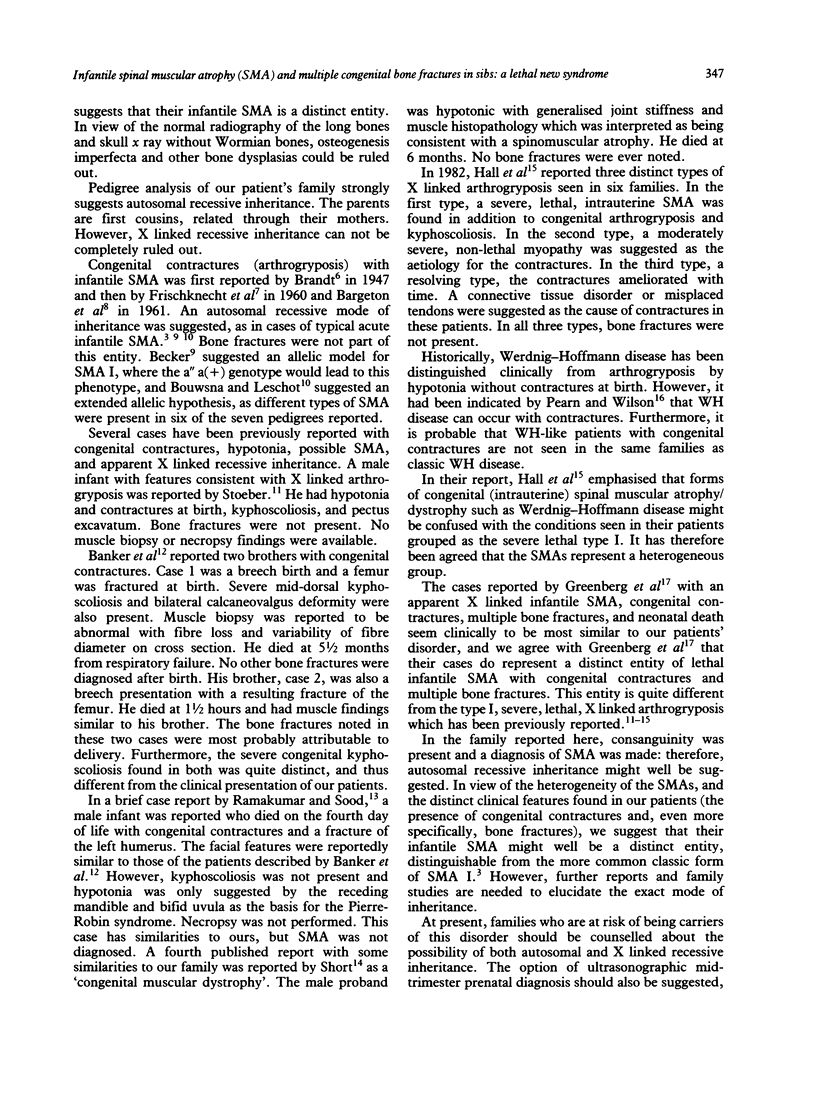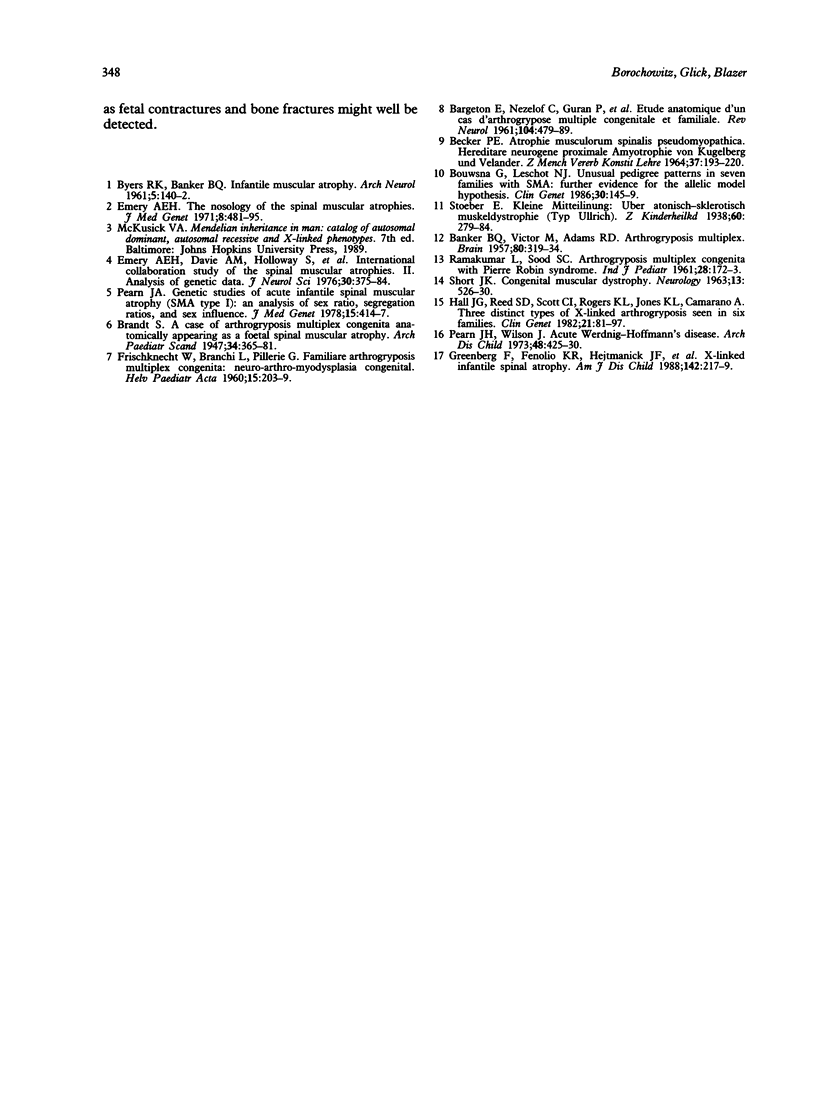Abstract
Acute infantile spinal muscular atrophy (SMA type I, Werdnig-Hoffmann disease) has generally been accepted as an autosomal recessive disorder. However, several investigators have noted a slightly increased male to female ratio. We describe here a family with two affected male sibs who had a form of acute infantile SMA with congenital bone fractures, whose parents were first cousins. Pedigree analysis strongly suggested autosomal recessive inheritance, but X linked recessive inheritance could not be ruled out. In view of the heterogeneity of the SMAs, and the distinct clinical features found in our patients, we suggest that their infantile SMA might well be a distinct entity. We suggest that SMA I with congenital contractures and bone fractures appears to be a recognisable disorder that can be distinguished from the more common classic form of SMA I.
Full text
PDF



Selected References
These references are in PubMed. This may not be the complete list of references from this article.
- BANKER B. Q., VICTOR M., ADAMS R. D. Arthrogryposis multiplex due to congenital muscular dystrophy. Brain. 1957 Sep;80(3):319–334. doi: 10.1093/brain/80.3.319. [DOI] [PubMed] [Google Scholar]
- BARGETON E., NEZELOF C., GURAN P., JOB J. C. [Anatomical study of a case of congenital and familial multiple arthrogryposis]. Rev Obstet Ginecol Venez. 1961 Jun;104:479–489. [PubMed] [Google Scholar]
- BECKER P. E. ATROPHIA MUSCULORUM SPINALIS PSEUDOMYOPATHICA. HEREDITAERE NEUROGENE PROXIMALE AMYOTROPHIE VON KUGELBERG UND WELANDER. Z Mensch Vererb Konstitutionsl. 1963 Dec 17;37:193–220. [PubMed] [Google Scholar]
- Bouwsma G., Leschot N. J. Unusual pedigree patterns in seven families with spinal muscular atrophy; further evidence for the allelic model hypothesis. Clin Genet. 1986 Sep;30(3):145–149. doi: 10.1111/j.1399-0004.1986.tb00586.x. [DOI] [PubMed] [Google Scholar]
- Emery A. E., Davie A. M., Holloway S., skinner R. International collaborative study of the spinal muscular atrophies. Part 2. Analysis of genetic data. J Neurol Sci. 1976 Dec;30(2-3):375–384. doi: 10.1016/0022-510x(76)90141-6. [DOI] [PubMed] [Google Scholar]
- Emery A. E. The nosology of the spinal muscular atrophies. J Med Genet. 1971 Dec;8(4):481–495. doi: 10.1136/jmg.8.4.481. [DOI] [PMC free article] [PubMed] [Google Scholar]
- Greenberg F., Fenolio K. R., Hejtmancik J. F., Armstrong D., Willis J. K., Shapira E., Huntington H. W., Haun R. L. X-linked infantile spinal muscular atrophy. Am J Dis Child. 1988 Feb;142(2):217–219. doi: 10.1001/archpedi.1988.02150020119045. [DOI] [PubMed] [Google Scholar]
- Hall J. G., Reed S. D., Scott C. I., Rogers J. G., Jones K. L., Camarano A. Three distinct types of X-linked arthrogryposis seen in 6 families. Clin Genet. 1982 Feb;21(2):81–97. doi: 10.1111/j.1399-0004.1982.tb00742.x. [DOI] [PubMed] [Google Scholar]
- Pearn J. H., Wilson J. Acute Werdnig-Hoffmann disease: acute infantile spinal muscular atrophy. Arch Dis Child. 1973 Jun;48(6):425–430. doi: 10.1136/adc.48.6.425. [DOI] [PMC free article] [PubMed] [Google Scholar]
- Pearn J. Genetic studies of acute infantile spinal muscular atrophy (SMA type I). An analysis of sex ratios, segregation ratios, and sex influence. J Med Genet. 1978 Dec;15(6):414–417. doi: 10.1136/jmg.15.6.414. [DOI] [PMC free article] [PubMed] [Google Scholar]
- RAMAKUMAR L., SOOD S. C. Arthrogryposis multiplex congenita with Pierre-Robin syndrome. Indian J Pediatr. 1961 Apr;28:172–173. doi: 10.1007/BF02760002. [DOI] [PubMed] [Google Scholar]
- SHORT J. K. Congenital muscular dystrophy. A case report with autopsyfindings. Neurology. 1963 Jun;13:526–530. doi: 10.1212/wnl.13.6.526. [DOI] [PubMed] [Google Scholar]


